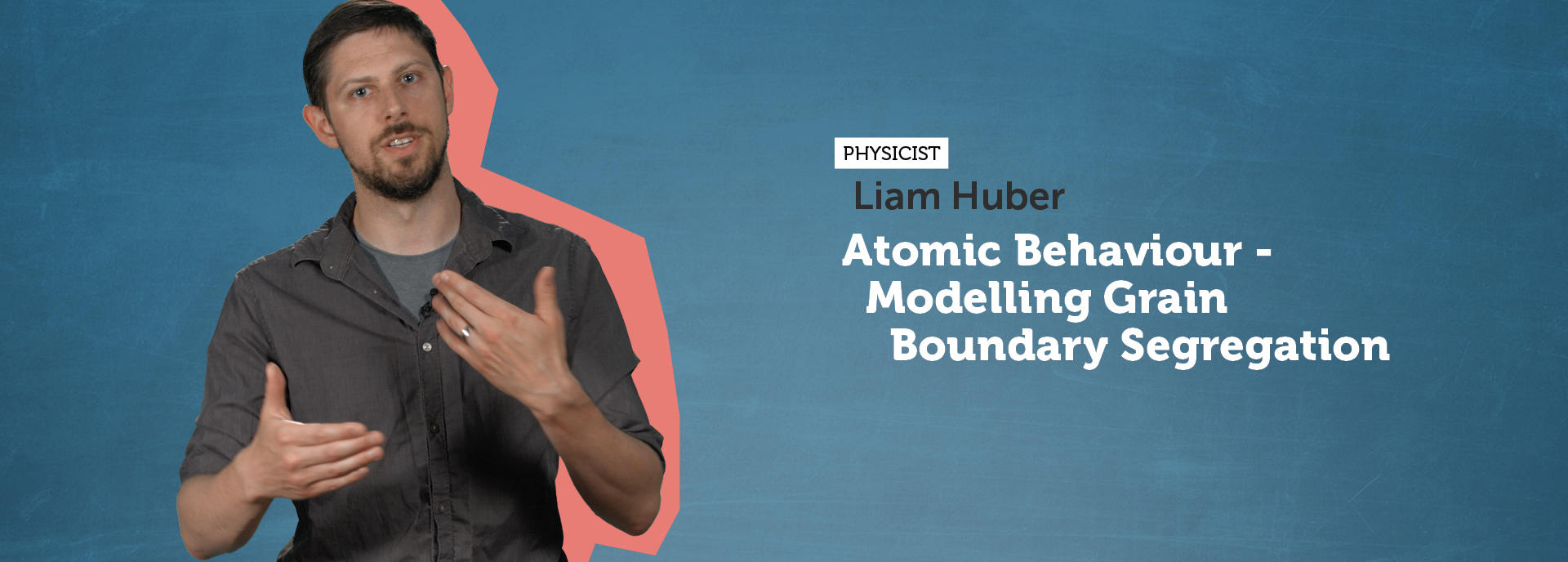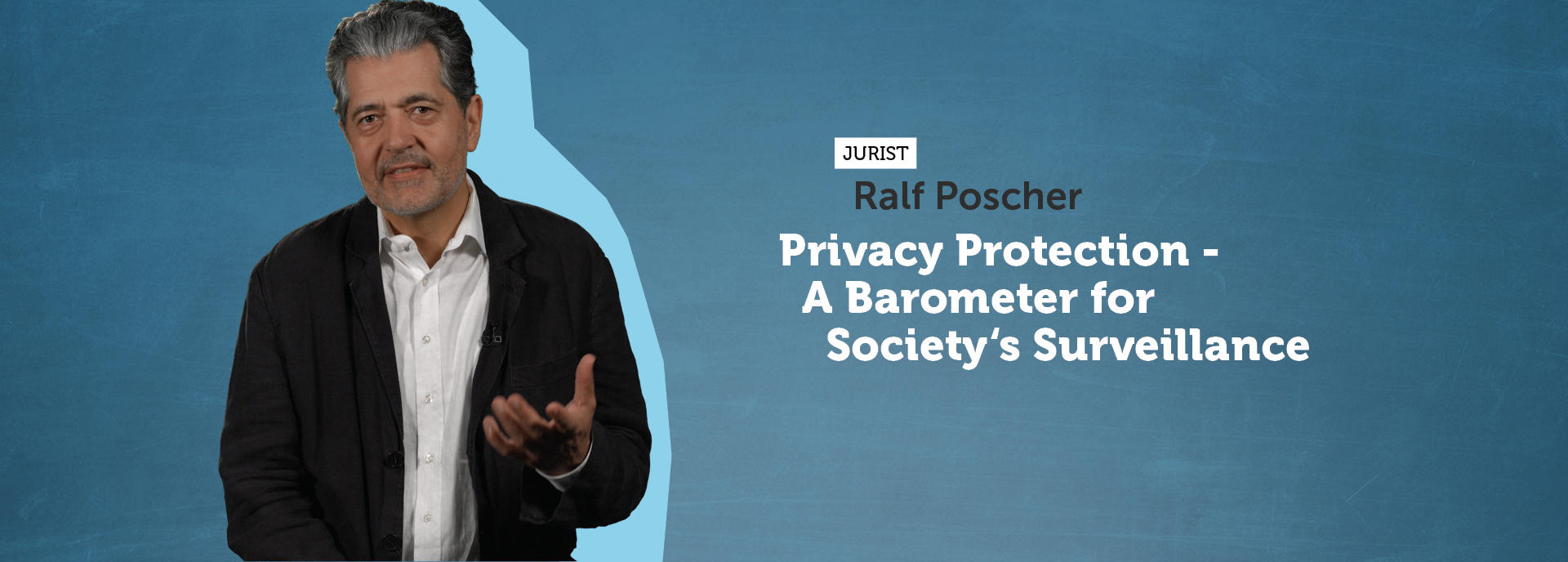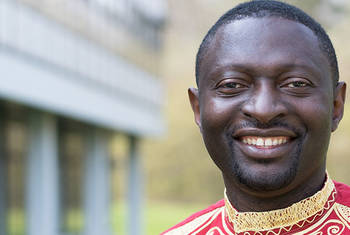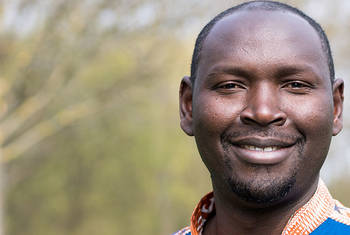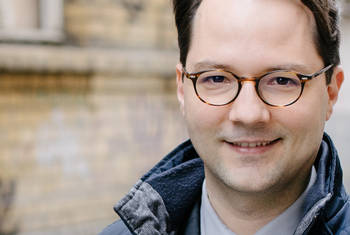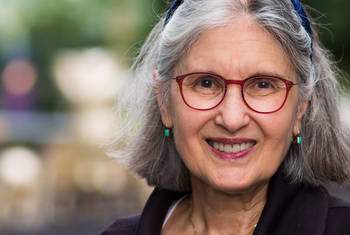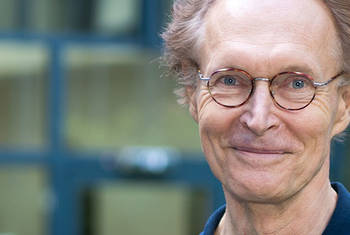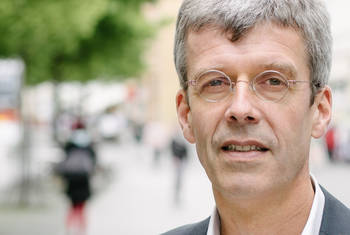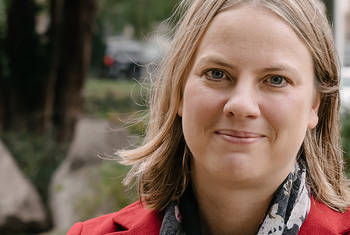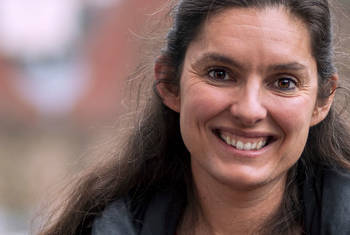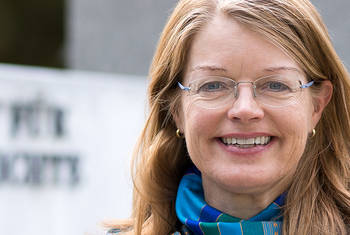Vinyl or analog records have experienced a tremendous upsurge in popularity over the last decade. In this video, DOMINIK BARTMANSKI analyzes the reasons underlying vinyl’s resurgence in an age where digital music seemed destined to wipe it out. Employing methods including discursive analysis and participant observation, Bartmanski highlights several aspects of analog music that its digital counterpart struggles to [...] Watch video
Are There Forms of Media Representation of Extreme Crises that Avoid Commodification and Spectacle?
In the face of extreme crises, such as natural disasters or national catastrophes, media representation frequently tends to be voyeuristic and to transform these events into spectacles. Considering this tendency, CHRISTIANE BROSIUS investigated whether there are forms of representation that allow to be close to people’s suffering and yet not to commodify it. She chose the 2015 earthquake in Nepal as a starting point and [...] Watch video
The topic of virtual violence in video games has been highly contested in Germany and other countries, especially in the context of school shootings. In contrast to these public debates, CHRISTOPH BAREITHER is interested in investigating the emotional experiences players have while enacting virtual violence. As he explains in this video, he used an ethnographic approach known as participant observation – in this case [...] Watch video
For music artists, the marketing possibilities of digital media have opened up new opportunities independent from the major music industry. MICHAEL AHLERS has examined this process using the German Gangsta rapper Kollegah as example. As Ahlers describes in this video, his research team conducted an interdisciplinary two-part study in focusing on Kollegah’s skill set and knowledge in one part and in the other one on the [...] Watch video
What Are the Lasting Impacts of British Colonization on Language Use in Postcolonial African Societies?
The lasting effects of colonization on African societies have been long acknowledged. In this video, ERIC ANCHIMBE examines the particular effects of British colonization in Africa, focusing on how people use language in their daily lives to make and refuse offers. Employing methods including discourse completion task questionnaires, interviews and participant observation, Anchimbe analyzes the data obtained using the [...] Watch video
What Explains the Impact of Popular Chinese Fiction from the Period After the Foundation of the PRC?
Certain fictional texts written during the seventeen years after the foundation of the People’s Republic of China (PRC) and before the Cultural Revolution are seen as influential and popular over time. In her research project presented in this video LENA HENNINGSEN investigates which factors lead to said popularity, which normative elements are contained in the texts and how they are constructed. She explains how [...] Watch video
How Does the Depiction of Cartoon Characters’ Bodies and Faces Influence Our Reaction to Them?
As STEPHAN PACKARD explains, readers’ interpretation of cartoon characters is strongly influenced by the way they are depicted. Characters in comic books are often drawn in a very reduced way, and show both human and animal-like features. In the semiotic analysis presented in this video the relation between the way characters are depicted and the readers’ reaction is examined. An important finding is that the [...] Watch video
In late-Victorian popular fiction, science is often represented in an unorthodox way, for example in the figure of mad scientists, such as Dr Jekyll. At the same time, there was a strong belief in the power of science as a tool for progress. The so-called scientific naturalists were strong and successful advocates of the objectivity and truthfulness of scientific work and represented scientists as virtuous model citizens. [...] Watch video
A student of mathematics at university is likely to encounter very similar material in the early years whether they enroll in Berlin, Beijing or Boston. In this video, MATTEO VALLERIANI asks how this homogenization of scientific knowledge occurs. Looking at various aspects of mathematical study at universities between the 12th and 17th centuries, Valleriani’s work combines history, philosophy and computer science in the [...] Watch video
The notion of a powerful god is often said to play a significant role in supporting the transition from small relatively equal hunter and gatherer societies to big hierarchical societies. However, as RUSSELL GRAY explains in this video, while there is a correlation between “big gods” and “big societies”, this is no causal relationship. By comparing the evolution of different forms of social organization in [...] Watch video
Media Control means uses of media in terms of political power, e.g., censorship. By the means of discourse analysis, the research presented in this video investigates the communication of authorities and asks how they communicate about media they want to censor. As STEPHAN PACKARD explains, his analysis reveals two competing questions in those discourses. One is where and with what legitimacy a line is drawn between [...] Watch video
Unlike in Sociology, extensive research on disability has not been conducted in Cultural Studies. In this video, SUSANNE HARTWIG analyzes the ways in which disability has been portrayed in aesthetic texts and how this has developed over time. While stereotypical and reassuring representations of disability remain the norm, Hartwig observes that more unsettling depictions (which lead readers/spectators to question their [...] Watch video
One of the basic questions concerning religious pluralism in societies is whether it has a reinforcing or an undermining effect on religiosity of individuals. The two contradicting hypotheses are on the one hand the ‘market theory’ on the other hand the ‘secularization theory’. According to the ‘market theory’ a vast supply of religions in society also increases the demand for it and thus reinforces the [...] Watch video
The research question presented in this video focuses on the experiences and motivations of visitors to an art exhibition or museum. In order to establish the motivation for exhibition visits, VOLKER KIRCHBERG explains, the research team combined a variety of methodological approaches: questioning the visitors, measuring their cognitive and emotional responses, and tracking their movements through the exhibition. They [...] Watch video
The island of Mayotte forms part of the Comoros archipelago in the Indian Ocean. While Mayotte is part of France and the EU, other islands of the archipelago like Grande Comore and Anjouan are not. In this video, REMI TCHOKOTHE analyzes the tensions that this situation has caused, focusing on how they have been expressed in literary works. Employing close readings of writings by Nassur Attoumani and Soeuf Elbadawi [...] Watch video
Previous research has shown that single mothers experience disproportionately higher rates of physical and mental illness compared to partnered mothers. In this video, moving beyond that comparative focus, MINE KÜHN analyzes how the transition into and length of single motherhood impacts health and wellbeing, as well as the factors that determine those impacts. By investigating changes in single motherhood over time [...] Watch video
AXEL PHILIPPS investigates modes of visual protest. In this video, he describes his research of defacements of election posters on the streets. In order to determine the characteristics of these defacements, his research team used so-called ‘street reading’. They focused on defaced election posters on the main streets of Leipzig, Germany. Comparing their material to theoretical concepts drawn from the literature on [...] Watch video
To maintain confidence in scientific findings, the project presented in this video by SUSANN FIEDLER examines the reproducibility rate of empirical results in psychology: Studies published in three major psychological journals in 2008 are replicated by other researchers in collaboration with the original authors. The results of original and replicated studies are compared to determine the general reproducibility rate in [...] Watch video
While doing anthropological fieldwork in Malaysia, DOMINIK MÜLLER noticed that the Islamic Party of Malaysia organizes events and activities that are frequently embellished with popular culture elements, such as bands playing on electric guitars. This seemed at odds with common Western assumptions that Islamic political movements tend to condemn popular culture as un-Islamic. Müller then investigated how the change of [...] Watch video
Which Features of Language Allow Fiction to Influence People and Their View on Reality?
By integrating findings from cognitive linguistics, psychology and neurology into literary studies the research presented in this video examines the different uses and effects of language in literature. To get a grasp on the qualities of language that make the influence of fiction possible REMIGIUS BUNIA distinguishes two modes of language: one mode for communication about specific objects with specific attributes, and [...] Watch video
How Did China Juridically Deal with Atrocities Committed During the Cultural Revolution?
In the research presented in this video DANIEL LEESE asks how a party that did not fall from power dealt with atrocities committed under institutions of its own making. The study of case verdicts of an intermediate people’s court shows that the concept of transitional justice partly applies even though the transition is one from a totalitarian to an authoritarian regime. The study establishes that cases were dealt with [...] Watch video
With unprecedented acceleration in the geophysical impact of human activities and the identification of “tipping points” from which our planet will not be able to recover, mankind faces an increasingly imminent existential threat. In this video, STEFAN BRUNNHUBER describes how insights from psychology could help human beings to overcome these challenges. Brunnhuber demonstrates that existing proposed solutions, [...] Watch video
Some sciences like geology, astronomy or demography require a time scale of observation and study of phenomena that lasts longer than a human life span – and even that of civilizations. These “Sciences of the Archives” rely on the contribution of scientists who store their data and knowledge for the generations following after them. In this video LORRAINE DASTON explains how an interdisciplinary group of scholars [...] Watch video
Are there different types of beauty? In this video, WINFRIED MENNINGHAUS investigates the meanings of and values inherent in four categories of subject appeal, namely beauty, elegance, grace, and sexiness. Adopting a bottom-up approach which foregrounds individual beliefs over theoretical assumptions, Menninghaus finds that elegance, grace, and sexiness are sub-variants of the broader notion of beauty. Among its many [...] Watch video
To have empathy is often defined as the capacity to imagine or feel like other people feel. In the philosophical tradition morality and empathy have often been seen as intertwined or as one being the condition of the other. More recently, this close link has been questioned. Practical philosopher MONIKA BETZLER investigates how the human capacity to empathize with others is related to the concept of morality. In this [...] Watch video
When asked about the place of religion in their culture, many Chinese people will answer that China is a secular country with no major impact of religion. However, as PETER VAN DER VEER explains in this video, the Chinese are more religious than this perspective suggests and perform many rituals in their daily life. His research shows that this interpretation of Confucianism results from the historical influence of [...] Watch video
How Is the UNESCO World Heritage Title Being Awarded and What Are Its Consequences?
The UNESCO World Heritage title has become a powerful global brand. It influences people’s decisions of where to travel and conveys prestige and national pride. CHRISTOPH BRUMANN and his research group investigated how this title is being awarded and what its consequences are on the ground at the chosen sites. Brumann explains in this video that using a two-fold anthropological approach, the researchers found that, [...] Watch video
How Can We Historically Describe the Evolution of Knowledge and How Can We Account for It?
The history of science traditionally focuses on specific time periods or on scientists that made important discoveries. The research presented in this video by JÜRGEN RENN broadens the perspective and looks at the history of knowledge more generally. With the goal to investigate how knowledge evolves historically the researchers looked at it across time periods and disciplinary boundaries. By tracing three dimensions of [...] Watch video
How Can We Quantify the Immediate and Lingering Impact of Genocide on Local Populations?
Mass killings generally occur in settings of armed conflict where it is very difficult or impossible to collect official data on births, deaths and marriages. In this video, DIEGO ALBUREZ-GUTIERREZ confronts this challenge by focusing on the mass killings of the Maya Achi people which took place during the Guatemalan Civil War in the 1980s. Using a novel approach, the “Extended Genealogy Method”, Alburez-Gutierrez [...] Watch video
Research has shown that the practice of comparing is determined more by the actors doing the comparing than by the phenomena being compared. In this video, focusing on Cuba in the long nineteenth century, ANGELIKA EPPLE explores how comparisons based on race and skin color evolved in parallel with the changing makeup of that society. With contemporary discourse witnessing an upsurge in race-based comparisons keen to [...] Watch video
The migration of refugees is not a problem of the twenty-first century. Historian JENNY RAHEL OESTERLE investigates the question of how people in need of protection were treated in the Middle Ages. Her particular focus in this video is the Arabian Peninsula in the early seventh century, specifically the Islamic context during the lifetime of Muhammad. The term refugee is coined by a modern understanding in the context of [...] Watch video
During the refugee crisis of 2015, about 1.5 million refugees entered the European Union. LUDGER PRIES examined how it was possible that this massive inflow of people was managed relatively successfully. In particular, he researched how different actor groups, from volunteers and leftist activists to the police, worked closely together. Employing an organizational network analysis in five Mediterranean countries, as he [...] Watch video
How Do Moroccans Residing in Different Countries Perceive the Modernized Family Code?
In 2004, Moroccan authorities updated the Moroccan Family Code to reflect the needs of modern families. This was considered a revolutionary move at the time. The research presented in this video sets out to investigate how, after ten years, this modernized code has been implemented in people's lives not only in Morocco but especially in the lives of Moroccans residing in European countries. To get a full picture the [...] Watch video
Since Tunisia’s independence in 1956, the country has had a unique approach to the issue of gender compared to other Arabic countries as it pushed a public discourse on modernization and women’s rights. In this video, STEFFI HOBUß describes the approach of her researcher group to analyze how the issue of gender has been negotiated in Tunisia and how this has influenced Tunisia’s cultural memory ever since. By [...] Watch video
One of the most disputed issues in historical-comparative linguistics is the origin of the Japanese language and the question of whether it is related to the Transeurasian languages. MARTINE ROBBEETS has already shown in past research that it is possible to find a small core of evidence that relates Japanese as a daughter language of Transeurasian. This, she explains in this video, leads to new questions: How and why did [...] Watch video
Aesthetic experiences make a vital contribution to our lives. In this video, focusing on responses to artwork, architecture and natural landscapes, EDWARD VESSEL explores how aesthetic experiences function in the brain. Employing functional Magnetic Resonance Imaging (fMRI), Vessel attempts to correlate subjects’ aesthetic responses with data from two brain regions, the ventral occipitotemporal cortex and the default [...] Watch video
The 20th Century has been marked by a return to ethnic and religious affiliations and identifications which continue to be in the foreground of political discourse. The rise of religious groups is represented by the media as a turbulent phenomenon, which spikes new conflicts globally. These representations of collective identities are politically utilized. Resource conflicts and controversies about citizenship and [...] Watch video
Chinese local gazetteers have been recording local information since the 7th Century and the corpus of texts that they have produced provides an important resource for scholars. In this video, DAGMAR SCHÄFER explores the broader influence of the local gazetteers’ treatment of disasters. Employing digital humanities and the [...] Watch video
How can we best implement digital learning in schools? In this video, FRANK J.MÜLLER argues that the Norwegian Digital Learning Arena’s (NDLA) work with Open Educational Resources offers a highly instructive case study. Interviewing professionals and companies working with NDLA as well as school book publishers who have opposed the platform since its introduction in 2006, Müller shows how Norway has dealt with [...] Watch video
What Were the Cultural Implications of Political Communication in the Late Roman Republic?
Ancient historian CLAUDIA TIERSCH is interested in the political communication in the Late Roman Republic and its cultural implications. More specifically, she has investigated the question of how to understand the political aims of the political groups active at that time – the populares and the optimates – and analyzed their methods of addressing their adherents. In this video, she describes her research by [...] Watch video
The study presented in this video looks at effects of radio broadcasting before and during the Nazi dictatorship in Germany. As MAJA ADENA explains, an econometric analysis of the contents of aired programs and of political attitudes in the population show important effects of broadcasting before and after seizure of power by the Nazis in 1933: Before 1933, pro-democratic content had negative effects on voting for the [...] Watch video
All human societies have rituals, both in everyday life and for special, festive occasions or religious ceremonies. As AXEL MICHAELS points out in this video, rituals are not necessary for our lives. So, why are there so many and why do people follow rituals at all? Michaels has pursued these questions in the context of India. Applying an ethno-indological approach – observing how rituals are performed in India today [...] Watch video
The research presented in this video explores attitudes towards immigrants and their religious rights in Western societies, based on survey data. MARC HELBLING finds that religiosity and liberal values are key variables: Individuals with liberal values are generally more tolerant towards immigrants – but tolerate religious rights less. Religious people by contrast are less tolerant towards immigrants – but more open [...] Watch video
Due to the current dire economic situation in Hungary many feel nostalgic about a time in their nation’s history when jobs were more secure. Young Hungarians, despite being highly qualified, have trouble finding work in their home country as well as in Europe. This led to high votes for the nationalist parties in the elections of 2014, who promise a return to the time of the great Austro-Hungarian Empire. This [...] Watch video
Using participant observation and qualitative interviews in the Yoga scene the study presented in this interview investigates the characteristics of cosmopolitan spirituality. Findings from behavioral economics on altruism and religious giving are used to shed light on Yoga charity events. They exhibit an innovative mixture of generosity and liberal elements, such as competition, ANNE KOCH explains. Thus the observations [...] Watch video


